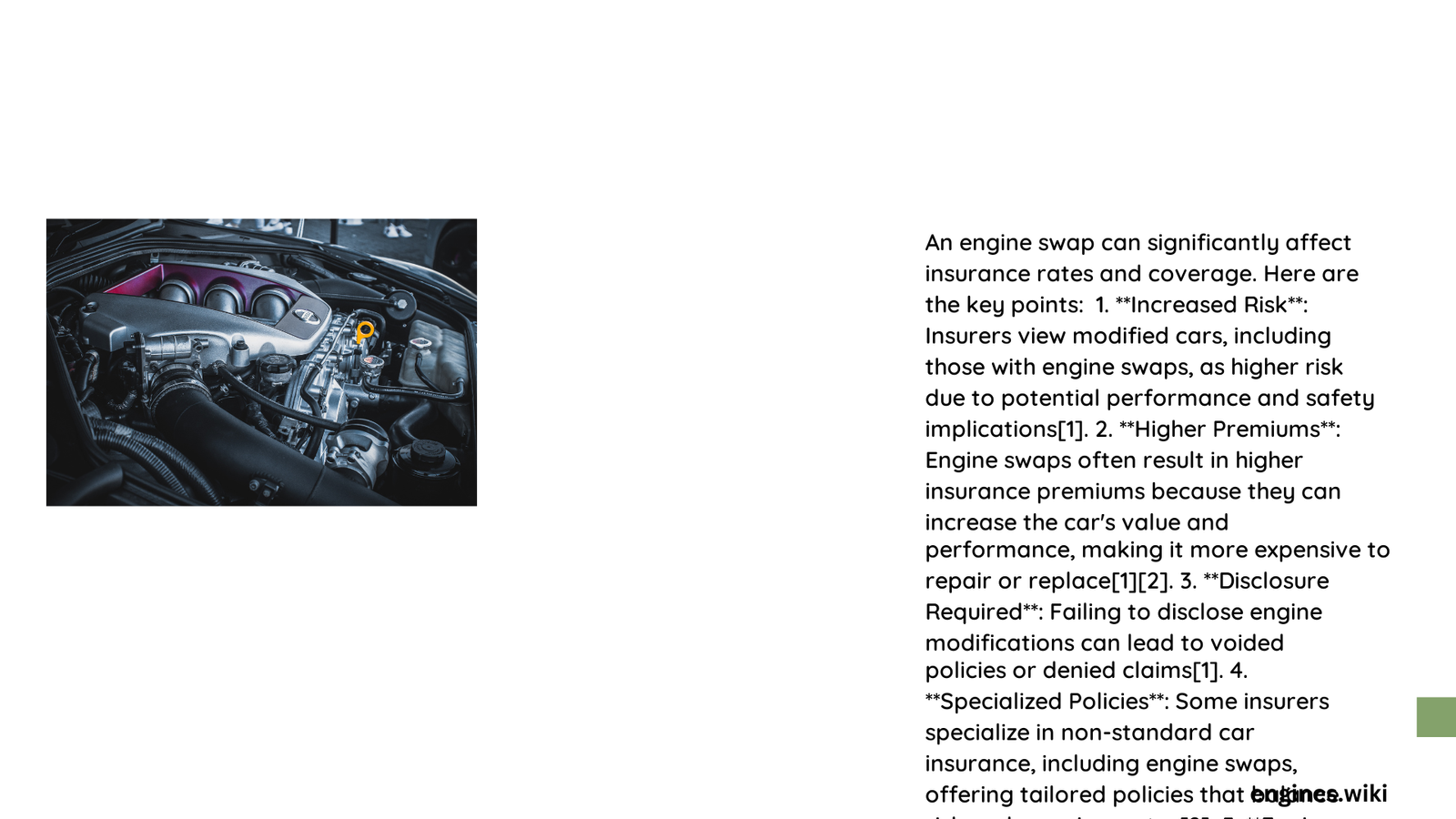Engine swaps can significantly alter your vehicle’s insurance landscape, potentially affecting coverage, premiums, and policy terms. Vehicle owners must understand that modifying an engine isn’t just a mechanical change but a complex process involving legal, financial, and insurance implications. Proper communication with insurance providers, comprehensive documentation, and understanding potential rate adjustments are crucial to maintaining valid and appropriate insurance protection.
What Happens to Insurance When You Swap an Engine?
When considering an engine swap, vehicle owners face multiple insurance-related challenges that can dramatically impact their coverage. Understanding these nuances is essential for making informed decisions about vehicle modifications.
Will Insurance Providers Know About Your Engine Swap?
Insurance companies rely on accurate vehicle information to assess risk and determine premiums. An undisclosed engine swap can lead to serious consequences:
- Potential Policy Cancellation: Failing to report modifications might result in policy termination
- Claim Denial: Insurers could reject claims related to the modified vehicle
- Fraud Allegations: Intentionally concealing engine changes might be considered insurance fraud
How Do Insurance Rates Change After an Engine Swap?
| Engine Swap Type | Potential Premium Impact | Risk Assessment |
|---|---|---|
| Similar Performance | Minor Increase | Low Risk |
| Higher Performance | Significant Increase | Medium Risk |
| Radical Modification | Substantial Increase | High Risk |
What Documentation Do You Need for Insurance?
Proper documentation is critical when performing an engine swap:
- Professional Installation Certificate
- Detailed Engine Specification Sheet
- Photographs of Installation
- Mechanic’s Verification Report
- Original and New Engine Specifications
Can All Insurance Companies Cover Modified Vehicles?
Not all insurance providers offer identical coverage for modified vehicles. Some key considerations include:
- Specialized performance vehicle insurers
- Custom modification coverage options
- Risk assessment based on engine performance
- Individual underwriting criteria
What Factors Influence Insurance After an Engine Swap?
Several critical factors determine insurance implications:
- Engine Performance: Horsepower and torque ratings
- Vehicle Age: Older vehicles might face different assessment
- Modification Quality: Professional vs. amateur installation
- Vehicle Usage: Daily driving vs. performance/racing
- Driver’s Driving Record
How to Minimize Insurance Complications?
Proactive steps can help manage potential insurance challenges:
- Communicate Transparently: Inform insurance provider immediately
- Get Professional Installation
- Maintain Comprehensive Documentation
- Consider Specialized Insurance Providers
- Understand Policy Limitations
What Are Potential Financial Risks?
Financial risks associated with undisclosed engine swaps include:
- Voided insurance coverage
- Out-of-pocket repair expenses
- Potential legal complications
- Difficulty obtaining future insurance
Expert Recommendations

Vehicle owners should:
– Consult insurance provider before modification
– Obtain written confirmation of coverage
– Maintain detailed modification records
– Consider specialized performance vehicle insurance
Conclusion
Engine swaps require careful navigation of insurance complexities. Transparency, documentation, and professional guidance are key to maintaining appropriate coverage.
